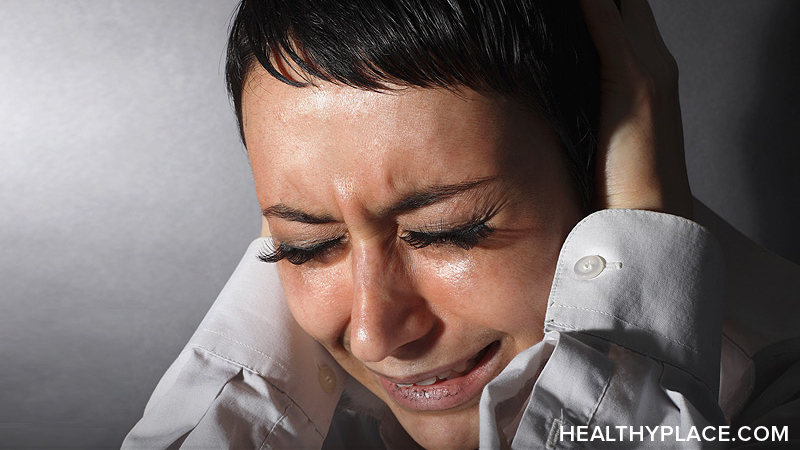Physical and Emotional Effects of PTSD

The physical and emotional effects of PTSD have roots in the traumatic event. In the moment, people respond physiologically as their sympathetic nervous system activates the fight-or-flight response; behaviorally as they react to impulses to fight, run, freeze, or avoid; and subjectively with intense thoughts and emotions. When this response is prolonged or reappears, it can become a trauma- and stressor-related disorder such as posttraumatic stress disorder (PTSD). The physical and emotional effects of PTSD can be profound and long-lasting.
How the DSM-5 Categorizes the Physical and Emotional Effects of PTSD
People experience both physical and emotional effects of PTSD. The American Psychiatric Association (2013) places PTSD effects into specific categories within the Diagnostic and Statistical Manual of Mental Disorders, Fifth Edition (DSM-5). These are
- Intrusion
- Avoidance
- Negative alterations in thoughts and mood
- Arousal and reactivity
Intrusion involves unwanted, recurrent memories of the trauma. They can be waking memories, flashbacks, and/or nightmares. Intrusion effects of PTSD cause a great deal of distress.
PTSD often leads someone to avoid bothersome events, people, places, and things. The avoidance effects of PTSD can severely limit someone’s life and can even lead to the anxiety disorder agoraphobia.
Changes in thoughts can include problems with memory, concentration, and a new, negative thinking style. PTSD effects involving mood include persistent negative emotions like fear, horror, anger, guilt, or shame as well as an inability to feel positive emotions like happiness, satisfaction, or love. These cognitive and emotional effects of PTSD can make someone feel detached from the world around him/her.
Hyperarousal is an effect of PTSD that makes someone startle easily, feel jumpy and on-edge, and have a heightened sensitivity to sensory stimulation. Someone experiencing arousal effects of PTSD is typically hypervigilant, always watching for danger. Heightened arousal can make sleeping difficult; sleep deprivation, in turn, worsens the effects of PTSD and prevents healing (Treating Anxiety Related Sleep Disorders).
Additionally, there is a sub-category of PTSD that includes dissociative experiences in which someone feels separate from reality. Dissociation can be but isn’t always part of the effects of PTSD.
Intrusion, avoidance, negative cognitive/emotional changes, arousal, and sometimes dissociation are the official DSM-5 categories of the effects of PTSD. PTSD can also be understood in terms of its physical and emotional effects.
Physical Effects of PTSD
The physical effects of PTSD can be felt anywhere in the body and can include, but aren’t limited to:
- Eating problems and digestive troubles
- Difficulty sleeping
- Headaches
- Fatigue
- Increased heart rate/pounding heart/heart palpitations
- Sweating
- Worsening of existing medical problems
- Pain
- Muscle tension
- Restlessness
- Shortness of breath
Emotional Effects of PTSD
PTSD negatively affects someone’s emotional wellbeing. Emotional effects of PTSD involve:
- Shame
- Survival guilt/self-blame
- Fear of losing control or going crazy
- Fear that the trauma will happen again
- Anxiety
- Depression
- Numbness
- Anger/rage
- Inability to feel pleasure, joy
- Rumination (thinking about, feeling the emotions of the event repeatedly)
- Hopelessness
- Detachment
- Helplessness
- Agitation
- Distrust
- Feeling alone, abandoned
The emotional and physical effects of PTSD can be intense and wearing, making one feel as if he or she is living in a nightmare. The DSM-5 criteria for PTSD warn that it is associated with suicidal ideation and attempts. Therefore, understanding PTSD effects and watching for them in yourself or a loved one can be crucial in getting the necessary help, support, and treatment (How To Help Someone With PTSD).
PTSD’s Effects on Family, Friends
The physical and emotional effects of PTSD can impact how someone interacts with people in their lives. Intimacy issues, work issues, emotional difficulties, cognitive changes, physical problems, intrusion, avoidance, and hyperarousal are effects of PTSD that make life difficult for the person experiencing PTSD as well as family members, friends, and others.
Family and friends of someone experiencing PTSD sometimes find it difficult to know what to do for their loved one. It’s common for family and friends to feel, among other things,
- Discouraged
- Anxious
- Afraid
- Helpless
- Hopeless and hopeful, sometimes at the same time
PTSD support groups, family therapy, education classes, the National Center For PTSD and more exist to support friends and families so they, in turn, can support their loved one experiencing PTSD.
PTSD and its effects have a profound impact on people. While these effects of PTSD can be long-term, they do not have to be a permanent part of someone’s life (Does A PTSD Cure Exist?). With treatment and time, these difficult effects of PTSD can come to an end.
APA Reference
Peterson, T.
(2021, December 16). Physical and Emotional Effects of PTSD, HealthyPlace. Retrieved
on 2026, March 4 from https://www.healthyplace.com/ptsd-and-stress-disorders/ptsd/physical-and-emotional-effects-of-ptsd


